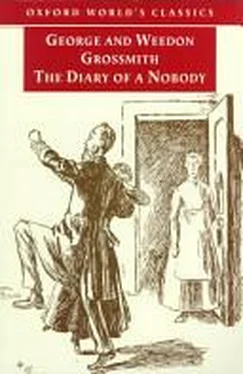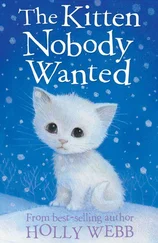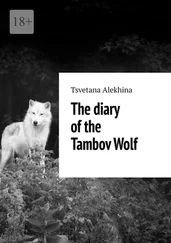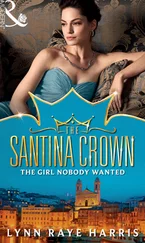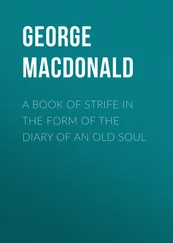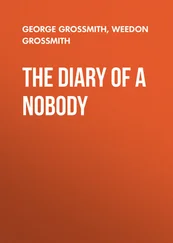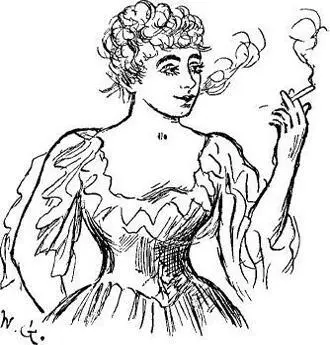
Lillie Girl
necklace, which her husband gave her as a birthday present, alone cost £300.
Mr Posh said he had a great belief in Lupin, and thought he would make rapid way in the world.
I could not help thinking of the £600 Mr Posh lost over the Parachikka Chlorates through Lupin’s advice.
During the evening I had an opportunity to speak to Lupin, and expressed a hope that Mr Posh was not living beyond his means.
Lupin sneered, and said Mr Posh was worth thousands. ‘Posh’s one-price-hat’ was a household word in Birmingham, Manchester, Liverpool, and all the big towns throughout England. Lupin further informed me that Mr Posh was opening branch establishments at New York, Sydney, and Melbourne, and was negotiating for Kimberley and Johannesburg.
I said I was pleased to hear it.
Lupin said: ‘Why, he has settled over £10,000 on Daisy, and the same amount on “Lillie Girl”. If at any time I wanted a little capital, he would put up a couple of “thou” at a day’s notice, and could buy up Perkupp’s firm over his head at any moment with ready cash.’
On the way home in the carriage, for the first time in my life, I was inclined to indulge in the radical thought that money was not properly divided.
On arriving home at a quarter-past eleven, we found a hansom cab, which had been waiting for me for two hours with a letter. Sarah said she did not know what to do, as we had not left the address where we had gone. I trembled as I opened the letter, fearing it was some bad news about Mr Perkupp. The note was: ‘Dear Mr Pooter,
– Come down to the Victoria Hotel without delay. Important. Yours truly, Hardfur Huttle.’
I asked the cabman if it was too late. The cabman replied that it was not ; for his instructions were, if I happened to be out, he was to wait till I came home. I felt very tired, and really wanted to go to bed. I reached the hotel at a quarter before midnight. I apologized for being so late, but Mr Huttle said: ‘Not at all; come and have a few oysters.’ I feel my heart beating as I write these words. To be brief, Mr Huttle said he had a rich American friend who wanted to do something large in our line of business, and that Mr Franching had mentioned my name to him. We talked over the matter. If, by any happy chance, the result be successful, I can more than compensate my dear master for the loss of Mr Crowbillon’s custom. Mr Huttle had previously said: ‘The glorious “Fourth” is a lucky day for America, and, as it has not yet struck twelve, we will celebrate it with a glass of the best wine to be had in the place, and drink good luck to our bit of business.’
I fervently hope it will bring good luck to us all.
It was two o’clock when I got home. Although I was so tired, I could not sleep except for short intervals – then only to dream.
I kept dreaming of Mr Perkupp and Mr Huttle. The latter was in a lovely palace with a crown on. Mr Perkupp was waiting in the room. Mr Huttle kept taking off his crown and handing it to me, and calling me ‘President’.
He appeared to take no notice of Mr Perkupp, and I kept asking Mr Huttle to give the crown to my worthy master. Mr Huttle kept saying: ‘No, this is the White House of Washington, and you must keep your crown, Mr President.’
We all laughed long and very loudly, till I got parched, and then I woke up. I fell asleep, only to dream the same thing over and over again.
One of the happiest days of my life .
JULY 10. The excitement and anxiety through which I have gone the last few days have been almost enough to turn my hair grey. It is all but settled. Tomorrow the die will be cast. I have written a long letter to Lupin – feeling it my duty to do so, – regarding his attention to Mrs Posh, for they drove up to our house again last night.
JULY 11. I find my eyes filling with tears as I pen the note of my interview this morning with Mr Perkupp. Addressing me, he said: ‘My faithful servant, I will not dwell on the important service you have done our firm. You can never be sufficiently thanked. Let us change the subject. Do you like your house, and are you happy where you are?’
I replied: ‘Yes, sir; I love my house and I love the neighbourhood, and could not bear to leave it.’
Mr Perkupp, to my surprise, said: ‘Mr Pooter, I will purchase the freehold of that house, and present it to the most honest and most worthy man it has ever been my lot to meet.’
He shook my hand, and said he hoped my wife and I would be spared many years to enjoy it. My heart was too full to thank him; and, seeing my embarrassment, the good fellow said: ‘You need say nothing, Mr Pooter,’ and left the office.
I sent telegrams to Carrie, Gowing, and Cummings (a thing I have never done before), and asked the two latter to come round to supper.
On arriving home I found Carrie crying with joy, and I sent Sarah round to the grocer’s to get two bottles of ‘Jackson Frères’.
My two dear friends came in the evening, and the last post brought a letter from Lupin in reply to mine. I read it aloud to them all. It ran: ‘My dear old Guv., – Keep your hair on. You are on the wrong tack again. I am engaged to be married to “Lillie Girl”. I did not mention it last Thursday, as it was not definitely settled. We shall be married in August, and amongst our guests we hope to see your old friends Gowing and Cummings. With much love to all, from The same old Lupin .’
THE END
Article in the Daily Mail (28 June 1930).
J. B. Priestley, English Humour (London: Heinemann, 1976), p. 94.
Arrowsmith had also published George Grossmith’s own recollections, A Society Clown , and that other late Victorian tour de force of gentle humour, Jerome K. Jerome’s Three Men in a Boat .
Frank Muir, The Oxford Book of Humorous Prose (Oxford: Oxford University Press, 1990), p. 372.
Tony Joseph, George Grossmith, Biography of a Savoyard (Bristol: Tony Joseph, 1982), p. 42.
The turning-point in our attitude towards Pooter comes on 21 March when Lupin, still smarting from losing his fiancée to a rival suitor, Murray Posh, from the hat-making family of the same name, lets out his frustration on a Posh hat he owns. At first Pooter is shocked by Lupin’s violent behaviour, but when he picks up the hat and finds the motif ‘Posh’s Patent’ he sympathizes with the boy’s plight. That this rare display of compassion comes three-quarters of the way through the book seems odd until one realizes that this scene was part of the original ending of the Diary when it first came out in Punch .
Sunday Times (23 February 1997).
The Oxford English Dictionary lists under ‘Pooterish’: ‘So many square miles of vapid and banal and Pooterish suburbs’ (taken from the Times Literary Supplement , 31 December 1976), and refers to George VI’s deadpan account of Pooterish bishops blundering through his coronation (taken from The Times , 14 May 1977).
In recent years articles in broadsheet newspapers have regularly compared public figures to the hero of The Diary of a Nobody . For instance, the Guardian in 1995 described footballer Alan Shearer’s Diary of a Season as like ‘Pooter without the laughs’. Two years later Chris Smith, Secretary of State for Culture, was described in a Sunday Telegraph review of his book, Creative Britain , as a ‘Pooter of the Arts’.
Читать дальше
